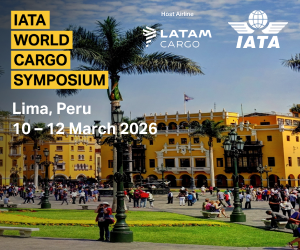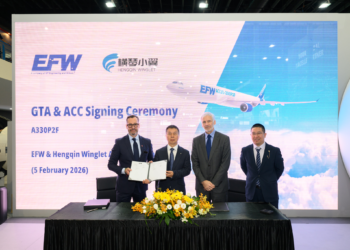Red Sea Global (RSG), the visionary developer behind regenerative tourism destinations The Red Sea and AMAALA, has announced a groundbreaking agreement to introduce Sustainable Aviation Fuel (SAF) to Saudi Arabia for the first time. This strategic move aligns with RSG’s commitment to making the aviation industry more sustainable and reducing the environmental impact of travel.
SAF, a crucial innovation in the fight against climate change, is designed to lower greenhouse gas emissions associated with aviation. It is produced either from clean hydrogen and captured carbon dioxide or from renewable and waste-derived aviation fuels. In a partnership with daa International, the operator of The Red Sea International Airport (RSI), and the airport’s fuel supplier, Arabian Petroleum Supply Company (APSCO), RSG has paved the way for airlines operating at RSI to refuel with SAF.
Under international standards set by organizations like the International Civil Aviation Organization (ICAO) and the International Air Transport Association (IATA), SAF is blended with conventional Jet A1 aviation fuel. At RSI, the SAF supply consists of a 35% SAF and 65% Jet A1 blend, which can reduce carbon emissions from each aircraft by up to 35%.

John Pagano, Group CEO of Red Sea Global, emphasized the significance of this development, stating, “Travel is a way to bridge cultures, broaden horizons, and regenerate the mind, body, and soul. But travel has a cost, especially for our planet. That is why we promised to transform the industry, moving it towards a sustainable, regenerative future. By bringing Sustainable Aviation Fuel into the Kingdom, we are dramatically reducing our guests’ personal carbon footprint from the moment they arrive and even after they leave.”
In line with its sustainability goals, RSG’s subsidiary, Fly Red Sea, which operates seaplane transfers, charter services, and scenic tours, will exclusively refuel its fleet with SAF and other low-carbon aviation fuels (LCAF). This initiative is part of a broader strategy to achieve net-zero emissions while enhancing the eco-consciousness of its operations.
Beyond aviation, RSG is implementing other environmental initiatives, including a commitment to power all operations with solar energy. The company has already installed over 400MWp of solar panels at The Red Sea, aiming to prevent up to 600,000 tons of CO2 equivalent emissions annually once fully operational. Furthermore, RSG is working towards increasing the mangrove density at the destination by 50 million trees by 2030, in collaboration with the National Center for Vegetation Cover and other stakeholders.
Michael White, Chief Commercial Officer at RSI, noted, “Introducing sustainable aviation fuel at Red Sea International Airport marks a significant milestone in our commitment to environmental stewardship and sustainability. This groundbreaking initiative not only reduces carbon emissions but also aligns with our broader mission to protect The Red Sea’s unique and fragile ecosystem.”
Since welcoming its first guests in 2023, The Red Sea has made remarkable progress, with five hotels now open. RSI has been operating domestic flights since September 2023, and international flights began in April 2024, with a twice-weekly route between The Red Sea and Dubai International Airport. By 2030, the destination will feature 50 resorts, 8,000 hotel rooms, over 1,000 residential properties, and luxury marinas, golf courses, and leisure facilities, establishing itself as a premier destination for sustainable tourism.





